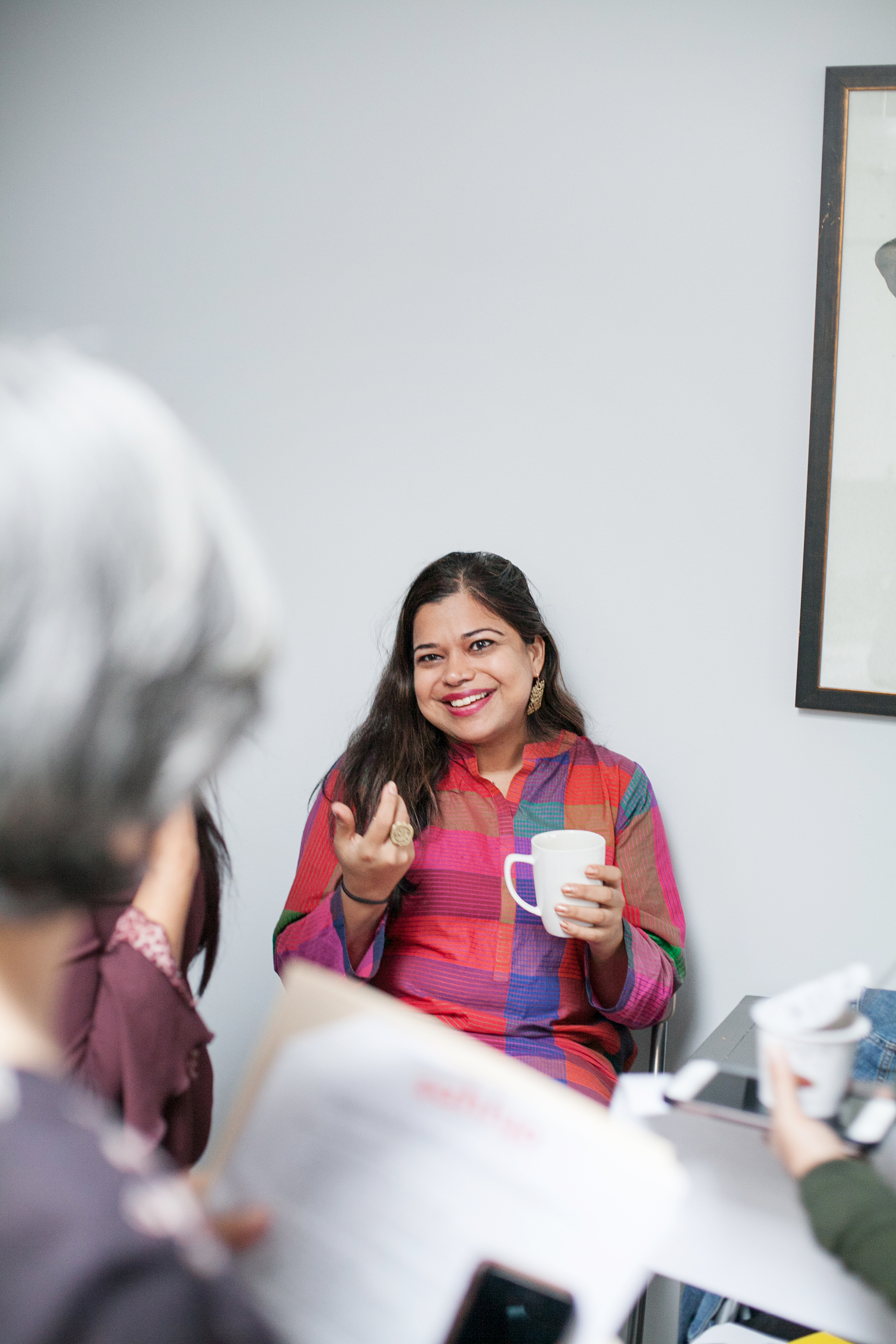Photograph of Maryum Saifee at Activist Retreat
By Maryum Saifee
In late March, I participated in Sahiyo’s Second Annual Retreat for survivors and allies in the campaign to end female genital mutilation (FGM). Attendees from the first retreat commented on how the program had more than doubled in size to over 20 this year. As an FGM survivor who reluctantly stumbled into this advocacy work three years ago, it made me reflect on how far we — as in the Bohra community — have come in such a short time.
Before 2016, only a handful of survivors had publicly shared their stories and many were anonymous blog posts. The intense community backlash for speaking out has prevented many from being able to share their stories. Even at the retreat, most of the attendees preferred to stay behind the scenes. Through the tireless dedication of the organizers (
Mariya Taher,
Zehra Patwa,
Alisha Bhagat, and others), Sahiyo created a safe space for these survivors and allies to heal, recharge, and strategize on how to harness the power of our collective to make change.
Thanks to Sahiyo — which has a foothold in both South Asia and the United States — we are seeing momentum build toward a transnational movement where dozens of survivors are sharing their stories breaking the culture of silence around FGM. For decades, the spotlight on FGM has almost
exclusively centered on sub-Saharan Africa. Now, as more survivors from non-African communities speak out, we are seeing this is much more pervasive than we previously thought. In Indonesia for example, UNICEF estimated that nearly 50% of girls and women are cut before 14 years of age.
In addition to providing a space to connect with one another and forge bonds of solidarity, we also had the opportunity to connect with other faith communities working to end gender-based violence.
Linda Kay Klein, a feminist who was brought up as an evangelical Christian, discussed her recent book
Pure, and the challenges she has faced with speaking up in her community. There were many parallels between her struggles and our own. Both the Bohra and evangelical communities are insular and tend to ostracize those who question authority.
During a coffee break, I had the opportunity to chat with Linda on the idea of doing an interfaith storytelling collaboration. Her talk was timely, as a member of the evangelical tradition from Kentucky had just broken her silence as an FGM survivor, reinforcing that FGM transcends race, religion, and geography.
As advisory board chair of Sahiyo, I felt privileged to see the organization’s work in action. Far too often, there is a martyrdom culture among activists where they feel the need to carry the weight of the world on their shoulders. Sahiyo’s commitment to annual retreats are critical in sustaining the activists who are the fuel behind the movement to end FGM. It was an honor to participate. I look forward to reconvening next year to continue learning from this amazing network of sister warriors.

